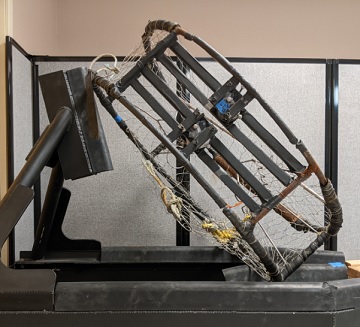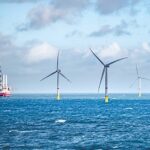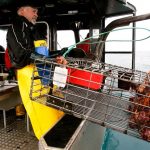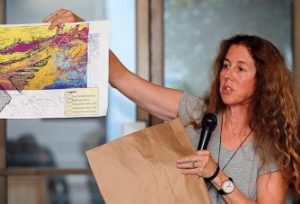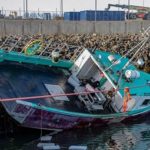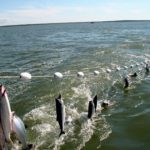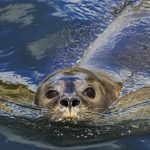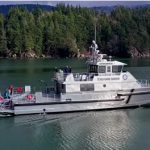Tag Archives: Oregon
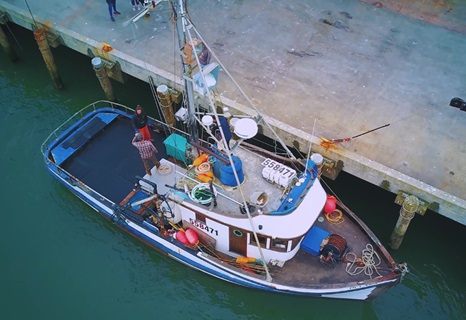
Reopening Areas for Groundfish Fishing After 20 Years
NOAA Fisheries has published regulation changes that will open fishing areas that have been closed for over 20 years. These areas were originally closed in the early 2000s to protect several species of overfished rockfish. With the rebuilt status of almost all these groundfish species, these closures can slowly be opened and allow fishermen greater access to catch healthy fish stocks. The regulations will also close some small areas to protect groundfish habitat, yelloweye rockfish (a species that is still rebuilding), and sensitive areas with abundant coral. These regulation changes are effective on January 1, 2024. Groundfish on the West Coast encompass over 90 species sharing one important trait: at some point in their life, they live on or near the ocean floor. Groundfish are a crucial part of West Coast underwater environments. They act as both predator and prey to different species and help maintain balance in underwater food chains. photos, charts, info, >>click to read<< 11:10
Non-profit helps scores of commercial fishermen with free fishing licenses
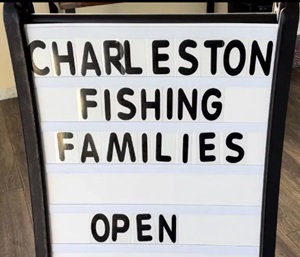 It’s not uncommon for a delayed start to Dungeness crab season along Oregon, in fact, many fishermen try to plan ahead for it. This year is the second in a row for commercial crabbers with the start on December 16 rather than December 1 due to low meat yields. Even with some fishermen able to secure other work, there remain those who need help making ends meet as they await the season open. Non-profit Charleston Fishing Families formed in 2016 with one of their goals being to help those fishermen. “During this time, money’s already tight. It’s holiday season. Often there’s a delay in the season, and so this was one way where we could directly help and impact the fishermen and just offset a little bit of costs. It may not be a lot, but it does help,” said Jackie Chambers, president of CFF. “This year, we had a record number of 73 in the span of five hours.” >>click to read<< 17:05
It’s not uncommon for a delayed start to Dungeness crab season along Oregon, in fact, many fishermen try to plan ahead for it. This year is the second in a row for commercial crabbers with the start on December 16 rather than December 1 due to low meat yields. Even with some fishermen able to secure other work, there remain those who need help making ends meet as they await the season open. Non-profit Charleston Fishing Families formed in 2016 with one of their goals being to help those fishermen. “During this time, money’s already tight. It’s holiday season. Often there’s a delay in the season, and so this was one way where we could directly help and impact the fishermen and just offset a little bit of costs. It may not be a lot, but it does help,” said Jackie Chambers, president of CFF. “This year, we had a record number of 73 in the span of five hours.” >>click to read<< 17:05
Commercial Dungeness crab season delayed
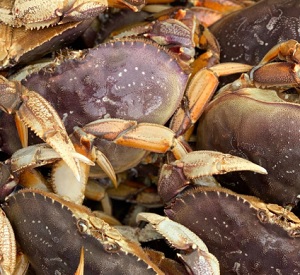 Pre-season testing shows Dungeness crabs are too low in meat yield in some ocean areas, delaying Oregon’s commercial season until at least Dec. 16. Targeted to open Dec. 1, Oregon’s ocean commercial Dungeness crab season can be delayed so consumers get a high-quality product, and crabs are not wasted. The next round of crab meat yield and biotoxin testing will occur in the coming weeks. Results help determine if the season opens Dec. 16 or is further delayed or split into areas with different opening dates. Oregon, California and Washington coordinate Dungeness crab quality testing and the commercial season opening dates. >>click to read<< 14:30
Pre-season testing shows Dungeness crabs are too low in meat yield in some ocean areas, delaying Oregon’s commercial season until at least Dec. 16. Targeted to open Dec. 1, Oregon’s ocean commercial Dungeness crab season can be delayed so consumers get a high-quality product, and crabs are not wasted. The next round of crab meat yield and biotoxin testing will occur in the coming weeks. Results help determine if the season opens Dec. 16 or is further delayed or split into areas with different opening dates. Oregon, California and Washington coordinate Dungeness crab quality testing and the commercial season opening dates. >>click to read<< 14:30
Taste of US West Coast seafood for Grimsby as Oregon’s eyes are on UK market
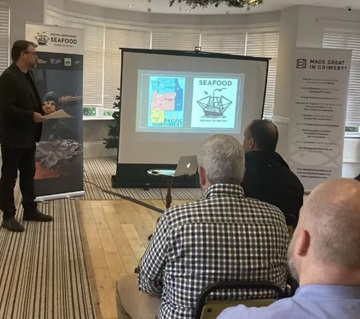 Grimsby has been given a taste of US West Coast seafood as new trade routes are explored. Lesser known species from the Pacific could be introduced to the UK market as a result, as work continues on establishing links between a resurrected fishery and the town. Erick Garman, trade manager for the Oregon Department of Agriculture, has visited the cluster, underlining the gateway status for the UK market. Importers, buyers and distributors have been given an overview of the species available, and the potential volumes, ahead of a tasting session. Trials are now being conducted with pub and restaurant chains, as work continues with major industry operators on securing deals. >>click to read<< 09:09
Grimsby has been given a taste of US West Coast seafood as new trade routes are explored. Lesser known species from the Pacific could be introduced to the UK market as a result, as work continues on establishing links between a resurrected fishery and the town. Erick Garman, trade manager for the Oregon Department of Agriculture, has visited the cluster, underlining the gateway status for the UK market. Importers, buyers and distributors have been given an overview of the species available, and the potential volumes, ahead of a tasting session. Trials are now being conducted with pub and restaurant chains, as work continues with major industry operators on securing deals. >>click to read<< 09:09
Crisis Hotline: New option for farmers, ranchers, loggers and fishermen in Oregon
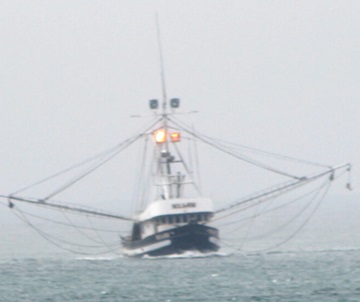 A new hotline, the Agristress Helpline, launched in Oregon in September. It is tailored to support those who work in agriculture, forestry or the fishing industry through a phone and text service that operates 24 hours a day, seven days a week. The helpline is free and has trained counselors with experience in those industries who can take phone calls in 160 languages, with English, Spanish and Vietnamese professionals available to respond by text. Experts say the line is sorely needed. Although the 988 crisis line provides a similar service, the Agristress line is specialized to address the needs of farmers, ranchers, loggers and fishermen. They often work in social and geographic isolation and in areas with limited access to health care services. These professions also have to grapple with extreme weather conditions, such as flash flooding or drought, and they face fluctuating commodity prices. >>click to read<< 18:06
A new hotline, the Agristress Helpline, launched in Oregon in September. It is tailored to support those who work in agriculture, forestry or the fishing industry through a phone and text service that operates 24 hours a day, seven days a week. The helpline is free and has trained counselors with experience in those industries who can take phone calls in 160 languages, with English, Spanish and Vietnamese professionals available to respond by text. Experts say the line is sorely needed. Although the 988 crisis line provides a similar service, the Agristress line is specialized to address the needs of farmers, ranchers, loggers and fishermen. They often work in social and geographic isolation and in areas with limited access to health care services. These professions also have to grapple with extreme weather conditions, such as flash flooding or drought, and they face fluctuating commodity prices. >>click to read<< 18:06
Oregon: Delayed Commercial Dungeness crab season
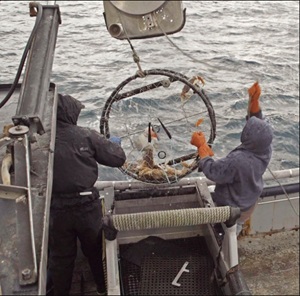 Pre-season testing shows Dungeness crabs are too low in meat yield in some ocean areas, delaying Oregon’s commercial season until at least Dec. 16, according to the Oregon Department of Fish and Wildlife (ODFW). Targeted to open Dec. 1, Oregon’s ocean commercial Dungeness crab season can be delayed so consumers get a high-quality product and crabs are not wasted. The commercial bay crab fishery (currently open) closes at 12:01 a.m. Dec. 1 in conjunction with the delayed ocean commercial season. It will reopen when the ocean commercial season does so. The next round of crab meat yield and biotoxin testing will occur in the coming weeks. Results help determine if the season opens Dec. 16 or is further delayed or split into areas with different opening dates. >>click to read<< 21:38
Pre-season testing shows Dungeness crabs are too low in meat yield in some ocean areas, delaying Oregon’s commercial season until at least Dec. 16, according to the Oregon Department of Fish and Wildlife (ODFW). Targeted to open Dec. 1, Oregon’s ocean commercial Dungeness crab season can be delayed so consumers get a high-quality product and crabs are not wasted. The commercial bay crab fishery (currently open) closes at 12:01 a.m. Dec. 1 in conjunction with the delayed ocean commercial season. It will reopen when the ocean commercial season does so. The next round of crab meat yield and biotoxin testing will occur in the coming weeks. Results help determine if the season opens Dec. 16 or is further delayed or split into areas with different opening dates. >>click to read<< 21:38
First Nations seek salmon return to Columbia Basin in new treaty with U.S.
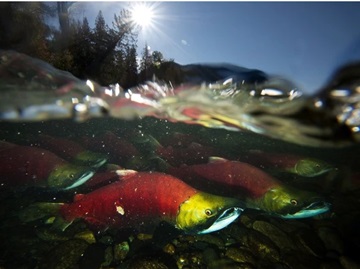 Representatives from the Ktunaxa and Syilx Okanagan nations say they continue to bring up salmon restoration in negotiations for a modern Columbia River Treaty and will not stop until a solution can be reached within or outside a new agreement. The U.S.-Canada treaty regulates the cross-border Columbia River to prevent flooding and generate hydro power. A key component of the 62-year-old treaty is set to expire in September 2024, lending urgency to the ongoing talks. “I think what we are doing in the fight to bring salmon back is vital to us moving forward,” said Lower Similkameen Indian Band Chief Keith Crow, who is a member on the Syilx Okanagan Nation’s Chiefs Executive Council and the Nation’s lead in the Columbia River Treaty talks. >>click to read<< 14:25
Representatives from the Ktunaxa and Syilx Okanagan nations say they continue to bring up salmon restoration in negotiations for a modern Columbia River Treaty and will not stop until a solution can be reached within or outside a new agreement. The U.S.-Canada treaty regulates the cross-border Columbia River to prevent flooding and generate hydro power. A key component of the 62-year-old treaty is set to expire in September 2024, lending urgency to the ongoing talks. “I think what we are doing in the fight to bring salmon back is vital to us moving forward,” said Lower Similkameen Indian Band Chief Keith Crow, who is a member on the Syilx Okanagan Nation’s Chiefs Executive Council and the Nation’s lead in the Columbia River Treaty talks. >>click to read<< 14:25
U.S. regulators will review car-tire chemical that kills salmon, upon request from West Coast tribes
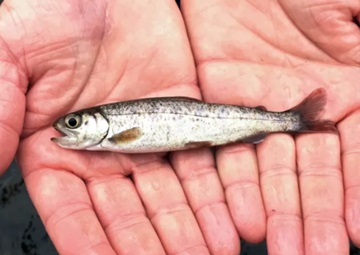 U.S. regulators say they will review the use of a chemical found in almost every tire after a petition from West Coast Native American tribes that want it banned because it kills salmon as they return from the ocean to their natal streams to spawn. The Yurok tribe in California and the Port Gamble S’Klallam and Puyallup tribes in Washington asked the Environmental Protection Agency to prohibit the rubber preservative 6PPD earlier this year, saying it kills fish — especially coho salmon — when rains wash it from roadways into rivers. Washington, Oregon, Vermont, Rhode Island and Connecticut also wrote the EPA, citing the chemical’s “unreasonable threat” to their waters and fisheries. >>click to read<< 10:14
U.S. regulators say they will review the use of a chemical found in almost every tire after a petition from West Coast Native American tribes that want it banned because it kills salmon as they return from the ocean to their natal streams to spawn. The Yurok tribe in California and the Port Gamble S’Klallam and Puyallup tribes in Washington asked the Environmental Protection Agency to prohibit the rubber preservative 6PPD earlier this year, saying it kills fish — especially coho salmon — when rains wash it from roadways into rivers. Washington, Oregon, Vermont, Rhode Island and Connecticut also wrote the EPA, citing the chemical’s “unreasonable threat” to their waters and fisheries. >>click to read<< 10:14
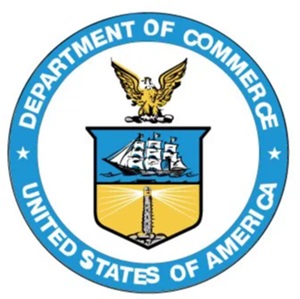
Struggling salmon fishermen getting federal help, but it may be too late
Earlier this month, two years after a request by Oregon’s governor, the U.S. Department of Commerce declared a Chinook fishery disaster for 2018, 2019 and 2020, years when local salmon populations plummeted. Fishing regulators blame the drop on poor habitat conditions and climate change near the California-Oregon border, where thousands of Chinook migrate from the ocean up rivers and streams to spawn. The disaster declaration releases financial assistance for fishermen and possibly for other businesses, along with funding to help restore the fishery and protect future Chinook runs, members of Oregon’s congressional delegation said in a statement. “The powers that be move pretty slowly when it comes to this stuff,” said Ray Monroe, a Pacific City dory fisherman. >>click to read<< 12:00
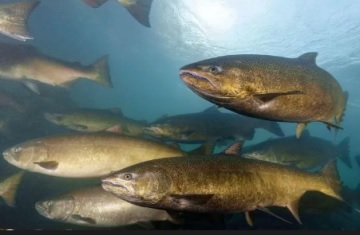
Oregon fishing disaster declared after failure impacting Chinook Salmon
Oregon Gov. Tina Kotek announced Friday that a fishing disaster has been declared following a three-year commercial fishery failure in the state. The declaration comes after U.S. Secretary of Commerce Gina Raimondo determined that a commercial fishery failure occurred in 2018, 2019 and 2020 because of a fishery resource disaster impacting Oregon Chinook Salmon Fisheries, the governor said. The determination comes after a request from former Gov. Kate Brown in October 2021. Fisheries with disaster determinations are eligible for funding from fishery disaster appropriations to help with community recovery, fishery restoration and prevention of future disasters. >>click to read<< 17:00
Retired Commercial Fisherman Mark Lee Roberts of Tillamook, Oregon, has passed away
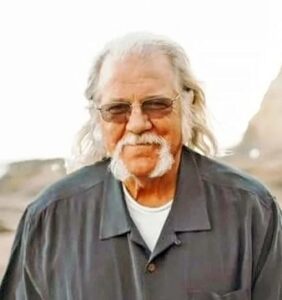 After a long battle with cancer, we lost our beloved husband, father, grandfather, great-grandfather and friend, Mark Lee Roberts. Mark was born in Portland, Oregon in 1952 to Harley and Irene Roberts. Mark grew up in SW Portland and attended St. Clare’s Catholic School and graduated from Central Catholic H.S. in 1970. He started commercial dory fishing with his father out of Pacific City in the Old Soak and Ragtag. He owned several dories including Shark Bait, Fish Assassin and Accomplice before acquiring a larger boat, the Pacific Mistress, which he commercial fished out of Depoe Bay. Mark was also part of the ODFW Marine Reserves Community Team, the Depoe Bay Near Shore Action Team, OSU Wave Energy participant, Oregon Dungeness Crab Commission member, and a longtime member of the Pacific City Dorymen’s Association. >>click to read<< 14:49
After a long battle with cancer, we lost our beloved husband, father, grandfather, great-grandfather and friend, Mark Lee Roberts. Mark was born in Portland, Oregon in 1952 to Harley and Irene Roberts. Mark grew up in SW Portland and attended St. Clare’s Catholic School and graduated from Central Catholic H.S. in 1970. He started commercial dory fishing with his father out of Pacific City in the Old Soak and Ragtag. He owned several dories including Shark Bait, Fish Assassin and Accomplice before acquiring a larger boat, the Pacific Mistress, which he commercial fished out of Depoe Bay. Mark was also part of the ODFW Marine Reserves Community Team, the Depoe Bay Near Shore Action Team, OSU Wave Energy participant, Oregon Dungeness Crab Commission member, and a longtime member of the Pacific City Dorymen’s Association. >>click to read<< 14:49
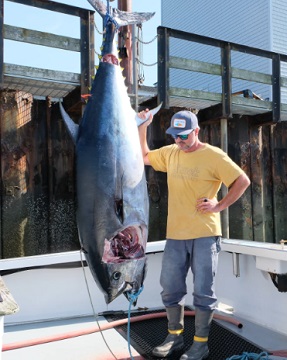
From the Gulf of Maine to a tin can: A glimpse into high-end tuna production on NH’s coast
“I left today at, like, 12 midnight,” he said, his face hidden behind mirrored sunglasses and a beard. “And then it’s about an hour and a half ride out, and it was beautiful last night because that big fat moon is waning.” Keper Connell is a one-man operation aboard his boat, The Figment. When conditions allow, he cruises into the Gulf of Maine in search of bluefin tuna, a torpedo-shaped fish that can reach more than 1,000 pounds. Rather than sell his bluefin to a wholesaler, where cuts may end up in a fishmonger’s display case, or as toro on a sushi menu, Connell is doing something that nobody else in the U.S. is apparently doing. His fish is put on ice and sent to Oregon, where it will be packed into tin cans with a high end olive oil and some salt. (There are no canneries on the East Coast where an independent fisherman can bring his catch, he says.) Photos, >>click to read<< 11:07
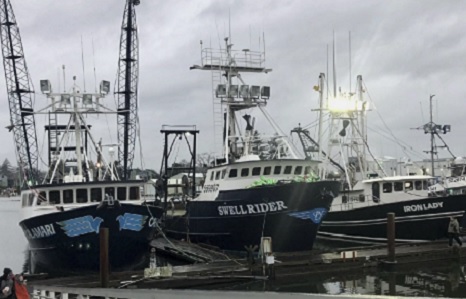
‘They’re not listening’: Fishermen, tribes voice concerns on two Oregon coast sites eyed for offshore wind farms
Last week, the Federal Bureau of Ocean Energy Management (BOEM) announced two draft Wind Energy Areas off the southern Oregon coast. One of them is offshore of Brookings, near the California border, the other off the coast of Coos Bay. The areas also represent prime fishing grounds and important cultural areas to local Indigenous tribes. Heather Mann, executive director of the Newport-based Midwater Trawlers Cooperative, said it feels like a lot of stakeholders’ concerns are being left unheard. “They’re not listening to coastal communities. They’re not listening to the fishing industry. They’re not listening to congressional representatives,” said Mann, whose organization represents 32 vessels that fish in the area. “Fishermen are not just concerned about being displaced from fishing grounds, though that is a critical piece. ” Video, >click to read< 11:35
Safeguarding Oregon’s Sustainable Seafood Industry: DEQ Urged to Reconsider Unachievable Permits
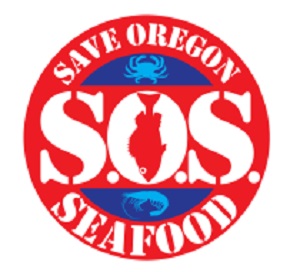 As proud stewards of the marine ecosystem, Oregon’s seafood industry has worked diligently for over a century to foster a sustainable environment, supporting thriving communities and vibrant coastal economies. However, our seafood industry now faces a critical challenge. The Oregon Department of Environmental Quality (DEQ) has introduced new wastewater discharge permits that threaten the future of our industry. These permits are overly complicated, technically infeasible, and they fail to consider the seafood processing industry’s unique traits and changing seasons. Even worse, they discourage recycling, hindering full utilization of our fisheries resources. This goes against our industry’s values and DEQ’s own goals of promoting recycling. >click to read< 11:09
As proud stewards of the marine ecosystem, Oregon’s seafood industry has worked diligently for over a century to foster a sustainable environment, supporting thriving communities and vibrant coastal economies. However, our seafood industry now faces a critical challenge. The Oregon Department of Environmental Quality (DEQ) has introduced new wastewater discharge permits that threaten the future of our industry. These permits are overly complicated, technically infeasible, and they fail to consider the seafood processing industry’s unique traits and changing seasons. Even worse, they discourage recycling, hindering full utilization of our fisheries resources. This goes against our industry’s values and DEQ’s own goals of promoting recycling. >click to read< 11:09
NOAA Recommends $106.1 Million in funding for West Coast and Alaska salmon recovery
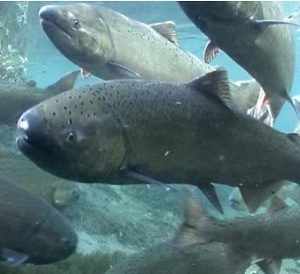 Today, the Department of Commerce and NOAA announced more than $106 million in recommended funding for 16 West Coast and Alaska state and tribal salmon recovery programs and projects under the Pacific Coastal Salmon Recovery Fund (PCSRF). The funds, including $34.4 million under the Bipartisan Infrastructure Law and $7.5 million under the Inflation Reduction Act, will support the recovery, conservation and resilience of Pacific salmon and steelhead in Alaska, California, Idaho, Oregon and Washington. This funding is part of President Biden’s historic Investing in America agenda, which includes over $2 billion for fish passage investments across the country. >click to read< 18:03
Today, the Department of Commerce and NOAA announced more than $106 million in recommended funding for 16 West Coast and Alaska state and tribal salmon recovery programs and projects under the Pacific Coastal Salmon Recovery Fund (PCSRF). The funds, including $34.4 million under the Bipartisan Infrastructure Law and $7.5 million under the Inflation Reduction Act, will support the recovery, conservation and resilience of Pacific salmon and steelhead in Alaska, California, Idaho, Oregon and Washington. This funding is part of President Biden’s historic Investing in America agenda, which includes over $2 billion for fish passage investments across the country. >click to read< 18:03
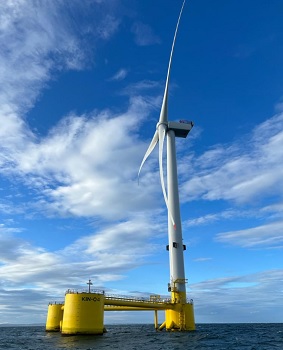
Feds ask for public comment on two Oregon Coast sites slated for floating offshore wind farms
Two sites off the southern Oregon coast could soon be home to the state’s first floating offshore wind farms. But first, the federal Bureau of Ocean Energy Management will meet with residents and stakeholders in coastal towns, some of whom are concerned about impact to the fishing industry and marine ecosystems. Officials from the ocean energy bureau announced Tuesday that they had identified two ideal “wind energy areas” near Coos Bay and Brookings. The two areas are 20 or more miles from land, collectively encompass about 344 square miles of ocean and could host enough floating wind turbines to generate 2.6 gigawatts of electricity, enough to power about 195,000 homes. >click to read< 10:29
Oregon imposes new limits on Dungeness crab fishermen to protect whales
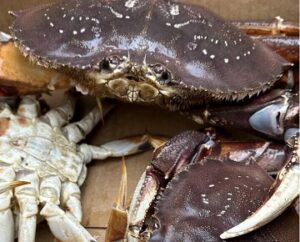 After a lengthy debate, the Oregon Department of Fish and Wildlife Commission voted late on Friday to extend and add on new rules limiting how the state’s Dungeness crab fisherman are allowed to fish, in an effort to protect whales from getting caught in their traps for the next two years. The crustaceans are native to the Pacific Northwest and are one of Oregon’s most profitable products, raking in more than $91 million for the state’s fisherman in the 2021-2022 season. The commission, however, passed a number of regulations in 2020, in response to concerns that migrating whale populations off the coast of Oregon were getting caught in ropes and traps known as crab pots set up by crab fishers and becoming injured or exhausted to the point that they could drown. >click to read< 09:44
After a lengthy debate, the Oregon Department of Fish and Wildlife Commission voted late on Friday to extend and add on new rules limiting how the state’s Dungeness crab fisherman are allowed to fish, in an effort to protect whales from getting caught in their traps for the next two years. The crustaceans are native to the Pacific Northwest and are one of Oregon’s most profitable products, raking in more than $91 million for the state’s fisherman in the 2021-2022 season. The commission, however, passed a number of regulations in 2020, in response to concerns that migrating whale populations off the coast of Oregon were getting caught in ropes and traps known as crab pots set up by crab fishers and becoming injured or exhausted to the point that they could drown. >click to read< 09:44
Oregon crabbers and environmentalists are at odds as a commission votes on rules to protect whales
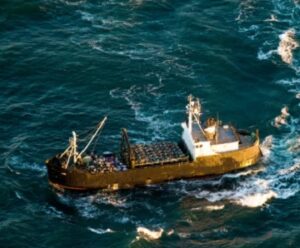 In the wheelhouse of a crab boat named Heidi Sue, Mike Pettis watched the gray whale surface and shoot water through its blowhole. Tangled around its tail was a polypropylene rope used to pull up crab traps. That was in 2004, off the waters of Waldport, Oregon. Pettis, a crab fisherman, said it’s the only time in his 44 years of fishing he has ever seen a whale caught in crab lines, and he believes that is proof such encounters are “extremely rare.” The Oregon Fish and Wildlife Commission is expected to vote Friday on whether to permanently set stricter rules and pot limits put in place in 2020 to protect whales. The restrictions, which were originally supposed to end after this season, would reduce the number of traps, known as pots, and how deep they can drop in the spring and summer months when humpbacks are more likely to encounter them. >click to read< 09:01
In the wheelhouse of a crab boat named Heidi Sue, Mike Pettis watched the gray whale surface and shoot water through its blowhole. Tangled around its tail was a polypropylene rope used to pull up crab traps. That was in 2004, off the waters of Waldport, Oregon. Pettis, a crab fisherman, said it’s the only time in his 44 years of fishing he has ever seen a whale caught in crab lines, and he believes that is proof such encounters are “extremely rare.” The Oregon Fish and Wildlife Commission is expected to vote Friday on whether to permanently set stricter rules and pot limits put in place in 2020 to protect whales. The restrictions, which were originally supposed to end after this season, would reduce the number of traps, known as pots, and how deep they can drop in the spring and summer months when humpbacks are more likely to encounter them. >click to read< 09:01
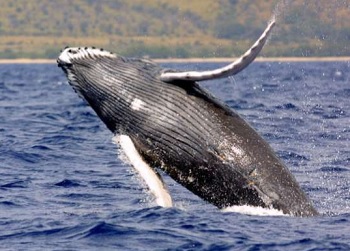
Federal fisheries service agrees to deal aimed at curbing whale entanglements in fishing gear
A legal agreement finalized Tuesday over the protection of humpback whales is expected to help the threatened animals thrive while maintaining the ocean’s health. The deal stricken between the National Marine Fisheries Service and Center for Biological Diversity will create a team to reduce the number of whales that get tangled in a West Coast federal fishery. The service will form the team by Oct. 31, 2025, a press release stated. A federal court in March sided with the center after it filed suit last year against the fisheries service. The center argued the service failed to protect Pacific humpback whales from getting entangled in sablefish pot gear off the California, Oregon and Washington coasts. >click to read< 09:33
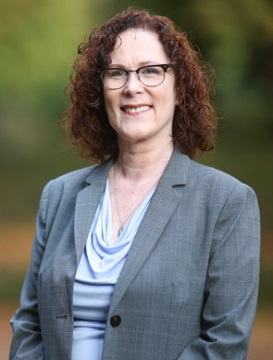
Hoyle Introduces Supporting Commercial Fishing Act
A release from Hoyle’s office said current law does not make it explicitly clear whether ports can apply for Port Infrastructure Development Program grants that support commercial fishing. Hoyle said that often leaves it up for interpretation that can overlook commercial fishing communities which are the backbone of the coastal communities. The release said Hoyle’s legislation would clarify that ports may apply for federal funding through the Maritime Administration’s PIDP for port infrastructure projects which support commercial fishing and all the jobs that comes with it. >click to read< 12:32
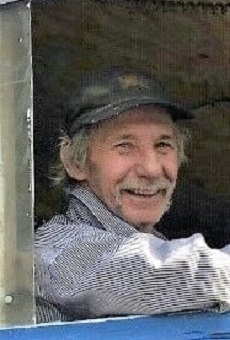
Commercial Fisherman Michael R. Price of Newport, Oregon, has passed away
Michael “Mikey Who” (as he was known to many) was born on February 25, 1955, in Coos Bay, Oregon to Roy L. Price and Jeanette G. (Bunker) Price. He graduated as an Honor Student from Pacific High School in 1973. That fall he enrolled in SOC at Ashland, Oregon. He attended SOC for 2 years then left to become a full-time commercial fisherman and he never looked back. His first boat was named the Abiquay. He fished for salmon and bottom fish at that time. He and his faithful dog, Quila, became well known on the Oregon and Northern California coast as fine fishermen. They made friends everywhere they traveled. >click to read< 12:08

Kotek calls for pause on offshore wind turbines
Gov. Tina Kotek is joining a chorus of voices, including tribes and commercial fishermen, urging the Biden administration to slow down its push for floating wind farms in the Pacific Ocean off the state’s southern coast. Regulators are now preparing a draft report outlining where in the areas turbines may be built safely while minimizing harm to fisheries and marine life. Members of the West Coast fishing industry, however, claim that the bureau is ignoring their concerns. They worry that floating offshore wind farms will displace boats from highly productive fishing grounds and could irreversibly damage the California Current ecosystem. >click to read< 09:20
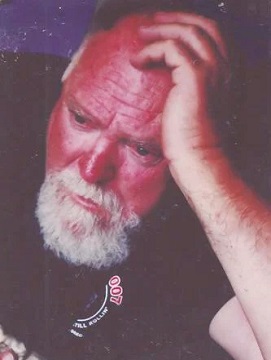
Army Vet/Commercial Fisherman Dale F Baines “Whaler” of Brookings, Oregon, has passed away
Dale was born on May 18, 1952, in Sacramento, CA to Vern and Marie (Barclay) Baines. At the age of 13 his mother and stepfather Leland Holmes moved the family to Gold Beach. Dale attended and graduated from Gold Beach High School in 1971. Soon after graduation he was drafted into the Army. Dale loved to fish from a young age. It was not surprising he became a commercial fisherman and in 1976 he bought his first F/V the TAKU a small salmon trawler which he fell overboard while fishing by himself off Eureka CA. Thankfully the Lord was not ready for him and saved him so that he could marry Mindy Payne on September 26, 1987. Dale spent many years working on others boats, until 2003 when he and his wife purchased the F/V Innisfree. >click to read< 13:04
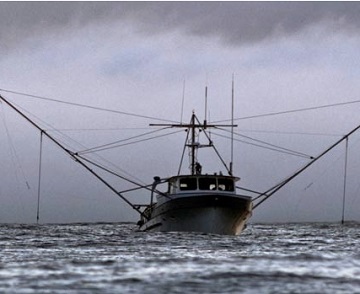
New Regulations: Commercial troll salmon season
The National Marine Fisheries Service (NMFS) in consultation with the Pacific Fishery Management Council (PFMC), the State of Oregon, the State of Washington, and fishery representatives met today via conference call and have taken the following in-season management action related to the commercial troll salmon season from the US/Canada border to Cape Falcon: Action taken,Modified the landing limit and possession limit in the area between the Queets River and Leadbetter Point from 150 to 200 Chinook per vessel per landing week (Thursday-Wednesday) from May 25 to June 21, and for the period of June 22-29 (Note that this is also the weekly maximum for all open areas combined). more, >click to read< 13:38
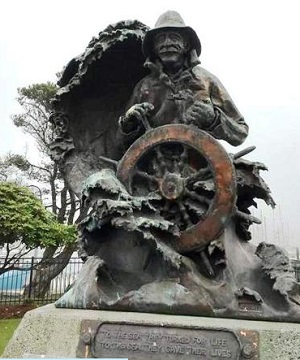
Blessing of the Fleet honors those in local fishing industry
The annual Blessing of the Fleet and Memorial Service will be held at the Charleston Fisherman’s Memorial Garden on Memorial Day. The service honors the local men and women involved in commercial fishing and the fishing industry who have lost their lives since 1941. This year they will be honoring fishermen Stan Main and Chauncey Woodworth, and fishing industry professionals Kevin Roy Cameron and Fernando Sandez. The 1954 Buoy Bell will be rung as each name is read, which is significant because fishermen rely on this sound to aid in safe navigation. The Fisherman’s Memorial Committee members said everyone in the community is invited to participate in the event. “It’s a matter of showing appreciation to the fisherman and to honor them, and it’s a nice event that shows patriotism,” Whitmer said. photos, >click to read< 11:26
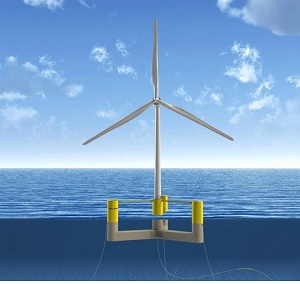
Old lumber port preps for new life as California offshore wind hub
Eureka’s halcyon days as the “timber capital” of California are long gone, but the deepwater port city 270 miles north of San Francisco may see its fortunes turn as the hub of the state’s first foray in offshore wind energy. Eureka sits across two of the five swaths of Pacific Ocean along the California coast that the federal government auctioned off to offshore wind developers this past December for a total of $757 million. The three other leases are on the Central Coast across from Morro Bay. Humboldt Bay, the second-largest bay in California after the San Francisco Bay, is ideally suited to become the final assembly port for the massive turbines. >click to read< 15:43
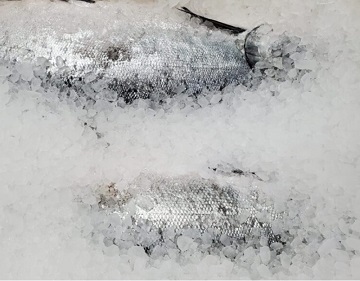
Alaska trollers will feel pain and unnecessary hardship from ruling on orca lawsuit
As president of Seafood Producers Cooperative, representing nearly 400 fishermen-owners, who reside in California, Oregon, Washington and Alaska, I want to convey our great disappointment and frustration with the recent ruling concerning the Wild Fish Conservancy and their lawsuit directed at our Salmon Troll fleet. The WFC found a technicality in National Oceanic and Atmospheric Administration’s biological opinion for troll-caught king salmon. No other fishing gear groups are being attacked and other commercial and sports fishermen in the region – and in the Puget Sound – will continue to harvest king salmon. >click to read< 08:59
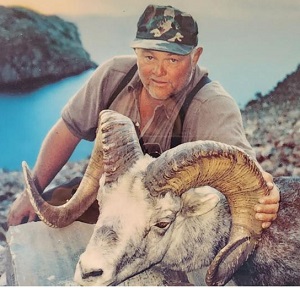
Commercial Fisherman Lloyd D. Whaley of Brookings, Oregon has passed away
Lloyd D. Whaley was born April 30th, 1943, and passed away peacefully on Saturday morning April 29th, 2023. He juggled working nights at the lumber mill while pursuing his eventual career during the daytime: commercial fishing. The long hours and lack of sleep eventually paid off when he was able to buy his first salmon trawler, the Marilyn A. Some years later, he sold the Marilyn A and bought a slightly larger trawler, the Kristy. Unfortunately, the risk of fishing caught up with him and the Kristy sank. Instead of becoming discouraged, he remained devoted to commercial fishing and built a boat that could handle harsher weather conditions and diversify into other fisheries such as crab, shrimp, and bottom trawl, the Cape Sebastian. From there he grew to a second vessel, a 90-foot gulf shrimper the BJ Thomas (later sold to his granddaughter Sarah and husband Justin). Finally, in 1987 in a partnership with his son, they built a combination trawler crabber in Alabama and named it the Miss Sarah after his granddaughter. Additionally, Lloyd gave 20 years of service to the Port of Brookings Harbor as a commissioner. >click to read< 11:54






